For these (and many other) AAHOA Members, involvement in state and local committees is a key part of their hotel ownership playbook
Advocacy is the lifeblood of AAHOA. Without strong and consistent representation in the chambers where laws, policies, and mandates are being drafted, debated, and voted on, hoteliers don’t stand a chance against the mammoth corporate interests that already have a foothold in that realm. And while AAHOA has a dedicated team who focus solely on legislative issues, AAHOA Members have a vested interest in helping to ensure hotelier-friendly legislation is enacted and laws that could prove harmful to the industry are advocated against.
And while advocacy can certainly take many different forms, the hoteliers featured here have lent their time and talents to various state and local committees to amplify the industry’s collective voice and help drive policy across the country.
If you’re still sitting on the sidelines, perhaps this will be an inspiration to you get into the game and join AAHOA to carpe the heck out of this diem.
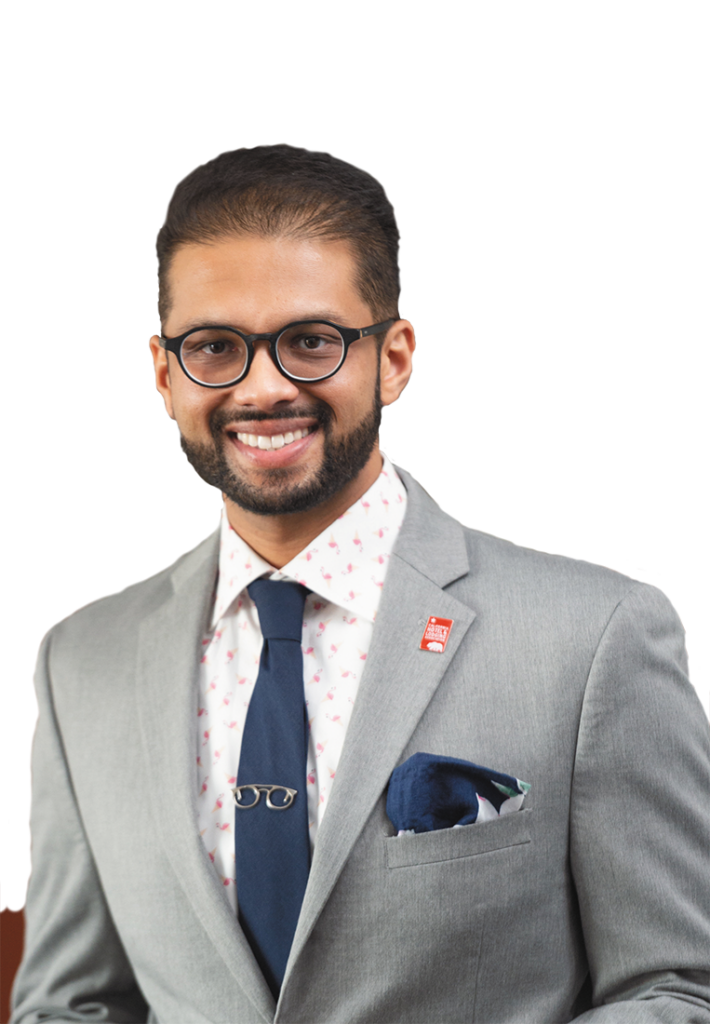 Bijal Patel
Bijal Patel
Chair of the California Hotel & Lodging Association Board (2020-2021)
Winner of the 2021 AAHOA Advocacy Award
WHAT COMMITTEES/ASSOCIATIONS/BOARDS ARE YOU CURRENTLY A PART OF AND WHAT ROLE(S) DO YOU HOLD?
Bijal Patel: I’m a third-generation hotelier currently completing my second oneyear term as Chair of the California Hotel & Lodging Association, the largest state hospitality group in the U.S. whose members operate almost a quarter of a million rooms at properties that range in size from small inn operations to hotels with 3,000 rooms.
WHAT FIRST PROMPTED YOU TO GET INVOLVED IN THE INDUSTRY FROM AN ADVOCACY PERSPECTIVE?
BP: The hotel industry is under siege by over-legislation and over-regulation. We must continually and relentlessly pursue the ability to operate our businesses without excessive and unnecessary government interference.
Some people call it “advocacy.” Others call it “lobbying.” I prefer to think of it as intelligent capitalism and responsible ownership. It means making ourselves known to the people who impact our bottom line. That’s the only way we will get laws and rules that help us more and hurt us less.
HAS YOUR INVOLVEMENT ALTERED YOUR VIEW OF THE INDUSTRY AND ITS NEEDS?
BP: I’ve learned that legislators, regulators, and their staffs typically aren’t familiar with the economic power, reach, and impact of the hotel industry. They don’t understand how their laws and regulations will affect the operations of our hotels in time, money, or manpower.
It’s our job to show government officials how certain laws and regulations are valuable and needed, while other laws and regulations are excessive, unnecessary, and might have heavy economic penalties or other unintended consequences.
WHAT ARE YOUR PLANS FOR INDUSTRY INVOLVEMENT ONCE YOUR CURRENT TERM CONCLUDES?
BP: I’m a third-generation hotelier, so this business is not just a job for me, it’s in my DNA. Yes, each of us faces a variety of challenges every day as a hotel owner, but hoteling is still one of the best ways to earn a living in the U.S. I intend to keep working in any way and every way possible to make sure our industry stays strong and becomes even more meaningful and rewarding.
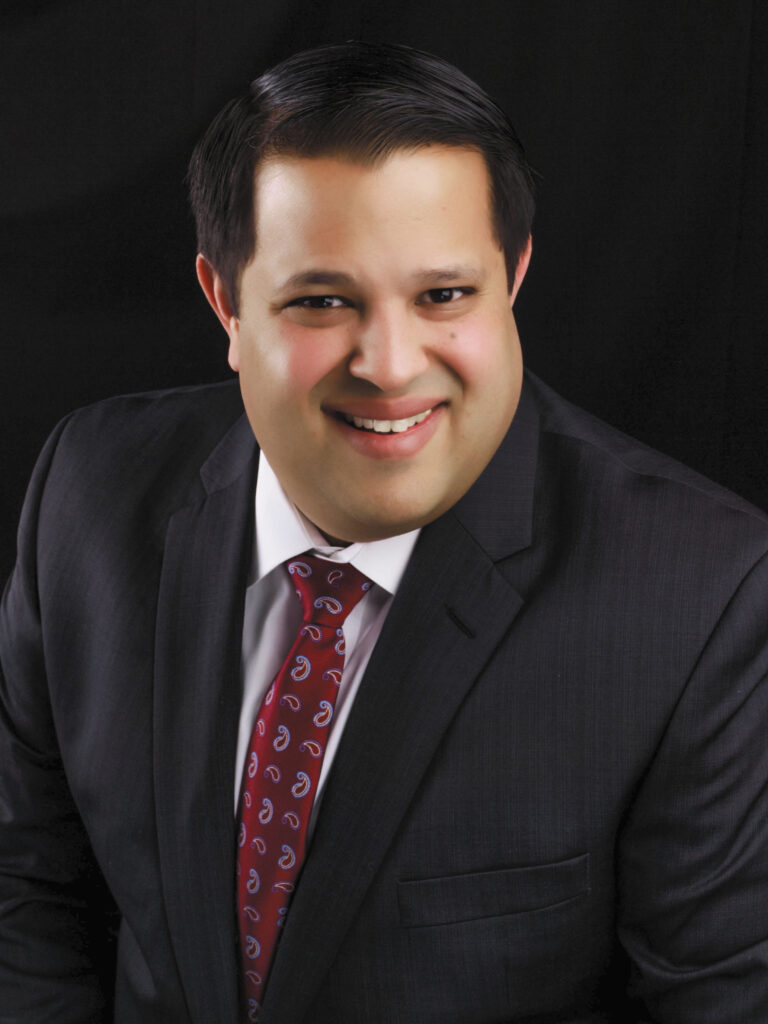 Pratik Patel
Pratik Patel
Chair, Texas Hotel & Lodging Association (2016)
AAHOA Past Chair (2014-2015)
WHAT COMMITTEES/ASSOCIATIONS/BOARDS HAVE YOU BEEN A PART OF AND WHAT ROLE(S) DID YOU HOLD?
Pratik Patel: I have been, or still am, a board member of AAHOA (2010-2015), Texas Hotel & Lodging Association (2020-present), American Hotel & Lodging Association (2010-2016), San Antonio Hotel & Lodging Association (2010-2013), and Visit San Antonio (2020-present).
WHAT FIRST PROMPTED YOU TO GET INVOLVED IN THE INDUSTRY FROM AN ADVOCACY PERSPECTIVE?
PP: I realized our industry wasn’t well represented. Our first generation worked extremely hard but never had their voices and ideas heard. I felt it was my responsibility to give back to them and our future by making sure we were heard and that our ideas would help shape future legislation.
CAN YOU GIVE EXAMPLES OF WAYS THE INDUSTRY BENEFITED FROM ADVOCACY EFFORTS IN WHICH YOU WERE ENGAGED?
PP: Through the various groups with which I’ve participated, I’ve gotten to see mainstream recognition of the hard work and the impact of hospitality across sectors outside of lodging. For example, we saw a reinstatement of SBA programs to help owners, prevention of bills that would adversely affect our industry, and we pushed for and secured funding for travel and tourism, as well as the promotion of hospitality.
WHAT ADVICE WOULD YOU GIVE FOR OTHERS WHO AREN’T YET INVOLVED IN ANY STRUCTURED FORM OF INDUSTRY ADVOCACY?
PP: Get involved. You can’t make a difference by sitting on the sideline. You need to make sure that our industry is represented in cities, states, and on the national level to help prevent legislation that may adversely affect your business and help create legislation that lets you continue the great work of hospitality on all levels. Simply put, you can’t accomplish these tasks unless you make sure your voice is heard by getting involved.
WHY MIGHT A HOTEL OWNER BE RELUCTANT TO GET MORE INVOLVED IN THE INDUSTRY FROM AN ADVOCACY POINT OF VIEW?
PP: It takes a lot of time and commitment for the greater good. But we all need to do our part to get involved and be represented.
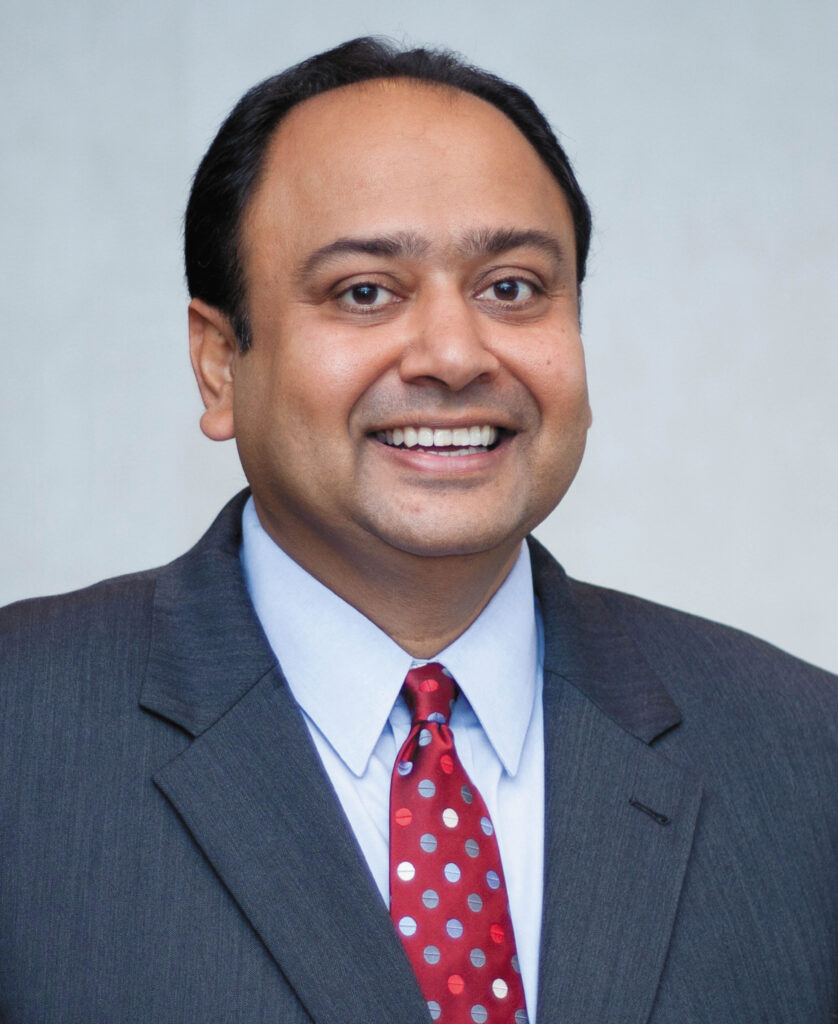 Vinay Patel
Vinay Patel
Past Chair, North Carolina Restaurant & Lodging Association
WHAT COMMITTEES/ASSOCIATIONS/BOARDS HAVE YOU BEEN A PART OF AND WHAT ROLE(S) DID YOU HOLD?
Vinay Patel: I have been, or still am, a part of the North Carolina Restaurant & Lodging Association, the Charlotte Regional Visitors Authority, Visit Lake Norman (CVB), Visit Cabarrus (CVB), North Carolina Travel & Tourism, TRIA, the Aloft FAC, the Marriott/Starwood Integration Board, the University of North Carolina at Chapel Hill Board of Trustees, the Charlotte, NC, Small Business Task Force, and the Hire Charlotte Task Force.
WHAT FIRST PROMPTED YOU TO GET INVOLVED IN THE INDUSTRY FROM AN ADVOCACY PERSPECTIVE?
VP: I initially got involved when I was working on the franchisor side at what is now Wyndham. When I moved to Charlotte in 2001 and joined the family business at SREE, my uncle explained the importance of being involved in not only the political process but also in civic opportunities. I saw firsthand the issues that being complacent can cause. We have to be active to ensure our businesses and communities will succeed.
CAN YOU GIVE EXAMPLES OF WAYS THE INDUSTRY BENEFITTED FROM ADVOCACY EFFORTS IN WHICH YOU WERE ENGAGED?
VP: Here in Charlotte, we were able to secure a $6-million grant program for hotels within the city limits, and we currently are working with the NC Legislature to secure a $500-million grant program for our industry from the current round of federal money that was sent to the state.
WHY MIGHT A HOTEL OWNER BE RELUCTANT TO GET MORE INVOLVED IN THE INDUSTRY FROM AN ADVOCACY POINT OF VIEW?
VP: I think the issue is not with all hotel owners, but some owners have a tendency to only get involved when they need something from the elected officials. They only come out when there is an issue that impacts them directly. Until then, they sit on the sidelines and let others do the work. My philosophy is to be involved and build relationships with them when we don’t need anything from them. Show them we aren’t only here for our benefit but also for our community as a whole. This allows you to build stronger relationships for when we truly need them, like we do right now.
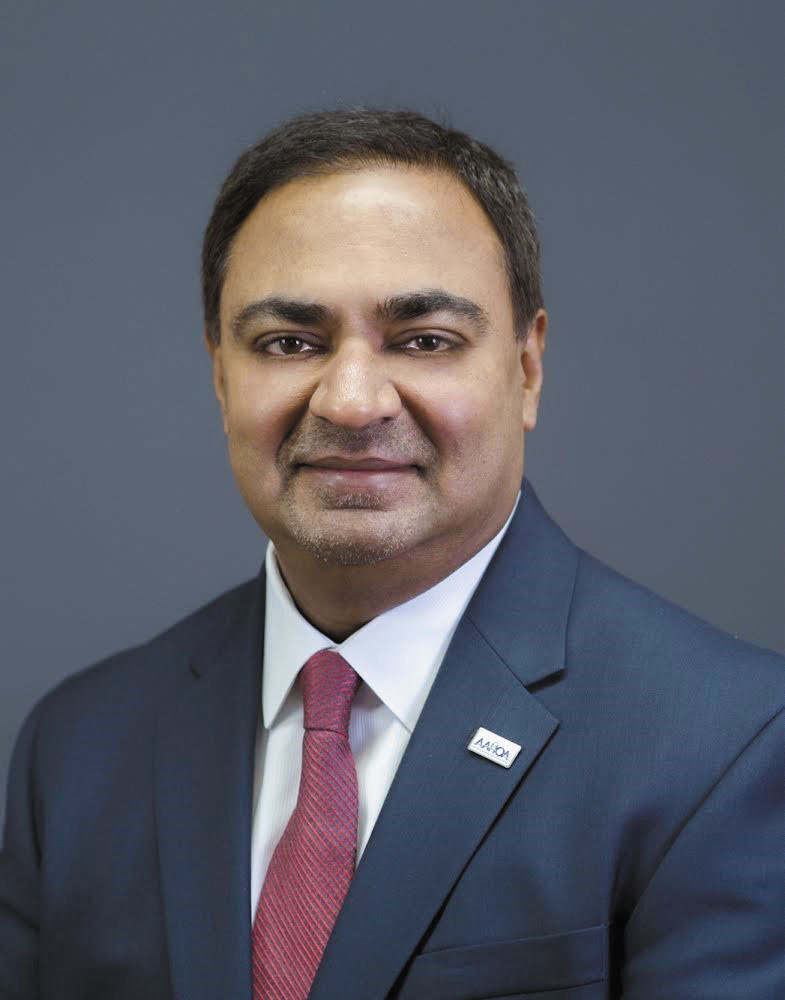 Bhavesh Patel
Bhavesh Patel
AAHOA Past Chair (2017-2018)
Chairman of the New Jersey Restaurant & Hospitality Association
WHAT COMMITTEES/ASSOCIATIONS/BOARDS ARE YOU CURRENTLY A PART OF AND WHAT ROLE(S) DO YOU HOLD?
Bhavesh Patel: I’m currently the chairman of the New Jersey Restaurant & Hospitality Association, a trustee of CLPSS, and a volunteer for the Cradle of Liberty Council and Boys Scout of America.
WHAT FIRST PROMPTED YOU TO GET INVOLVED IN THE INDUSTRY FROM AN ADVOCACY PERSPECTIVE?
BP: There wasn’t any representation for the hotel industry in New Jersey at the time. We had no voice, and a lot of harmful bills were being passed with nothing being done to try and stop them.
HAS YOUR INVOLVEMENT ALTERED YOUR VIEW OF THE INDUSTRY AND ITS NEEDS?
BP: Absolutely. We need to be much more involved so we have a strong voice and a seat at the table. If we don’t, we will get run over.
WHAT ARE THE KEY ISSUES FACING HOTELIERS TODAY?
BP: Right now, surviving is the key. We need help with labor, more funding as far as grants are concerned, and we need ways to bring in more business.
WHAT ARE THE ISSUES THAT THE COMMITTEES ON WHICH YOU CURRENTLY SERVE ARE FOCUSED?
BP: We are working hard to address the labor shortage and find funding. Many neighboring states have given a considerable amount of grant funds to hotels, but New Jersey hasn’t. So, I have been testifying in front of the governor’s policymakers in an effort to secure some of the funds from the American Rescue Plan that are designated for tourism and hospitality.
WHAT ARE YOUR PLANS FOR INDUSTRY INVOLVEMENT ONCE YOUR CURRENT TERM CONCLUDES?
BP: I certainly plan to be involved as much as possible as a board member for NJRHA and serving as an industry advocate wherever possible. If we don’t speak up, our voices won’t be heard and we won’t survive.
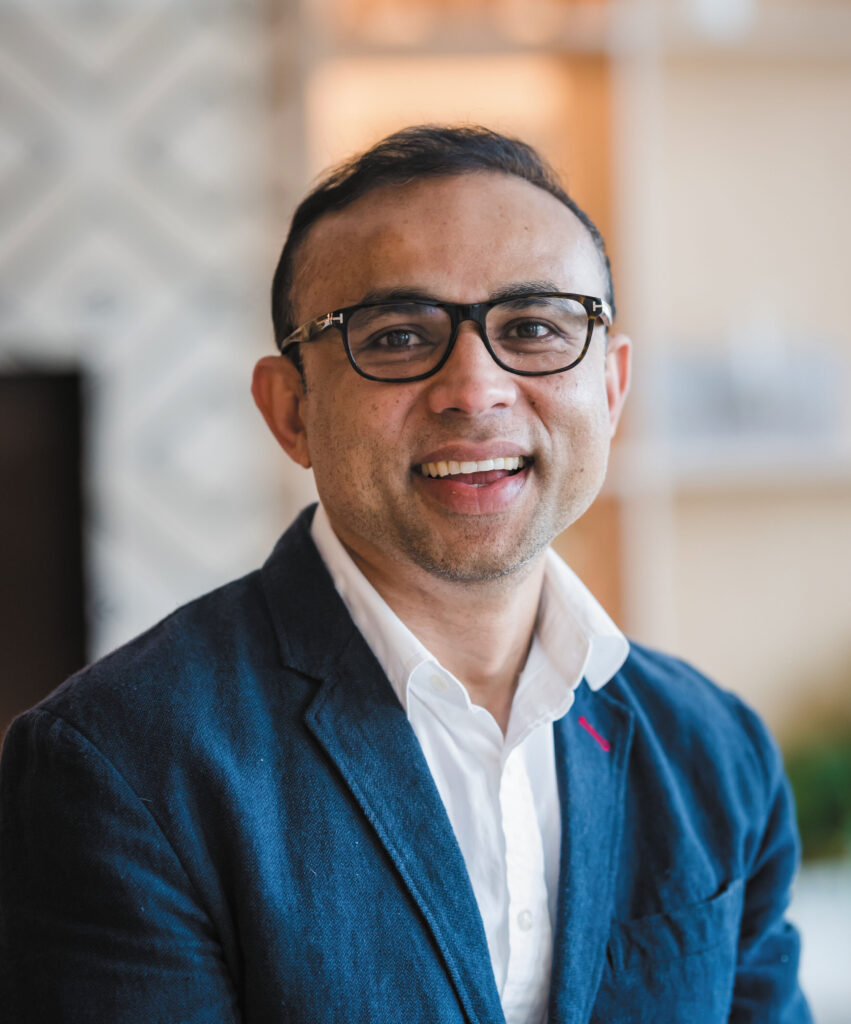 Masudur Khan
Masudur Khan
Past Chair, Oregon Restaurant & Lodging Association (2020-2021)
AAHOA Lifetime Member
WHAT COMMITTEES/ASSOCIATIONS/BOARDS ARE YOU CURRENTLY A PART OF AND WHAT ROLE(S) DO YOU HOLD?
Masudur Khan: I’m the immediate Past Chair of the Oregon Restaurant & Lodging Association (ORLA), having started my term in September 2020, and I have been on the Board of Directors for Distressed Children & Infants International (DCI) since 2002.
WHAT FIRST PROMPTED YOU TO GET INVOLVED IN THE INDUSTRY FROM AN ADVOCACY PERSPECTIVE?
MK: I started acquiring and managing hotels in 2004. When Airbnb came to market and started competing with traditional hotels, I thought our leaders could do better in creating equal regulations so everyone, including Airbnb, stays in compliance with rules and follows city/county regulations.
IS THIS YOUR FIRST EXPERIENCE SERVING ON AN INDUSTRY ADVOCACY COMMITTEE?
MK: It is, but I have been involved with local county committees and city and business development organizations, and I have provided my input on major changes like city planning and tax regulations.
HAS YOUR INVOLVEMENT ALTERED YOUR VIEW OF THE INDUSTRY AND ITS NEEDS?
MK: Serving at ORLA had a huge impact when I saw the issues leaders face while trying to implement a change or regulations. Especially during the pandemic, it is a tremendous experience to see how fast leaders must make decisions and implement those while minimizing chaos and keeping business owners, employees, and government in mind. ORLA is a huge association that works with numerous hoteliers and business owners. During unprecedented times, understanding how much the association needs to provide support with PPP loans, grant money, and business relief to those hoteliers and restaurant owners has been eye opening.
WHAT ARE THE KEY ISSUES FACING HOTELIERS TODAY?
MK: The key issues these days include handling COVID-related issues, addressing the severe labor shortage, dealing with market-demand fluctuations, a supplies shortage, the materials cost increase, capital limitations for new projects in real estate and the hospitality industry, and constant changes in government regulations. The market raised wages like never before and competing for workers and keeping up with wage increase had a tremendous impact on business expenses by jeopardizing hotel owners’ investments. We desperately need rules and regulations to address these situations so it doesn’t have a massive negative impact on small business owners.




